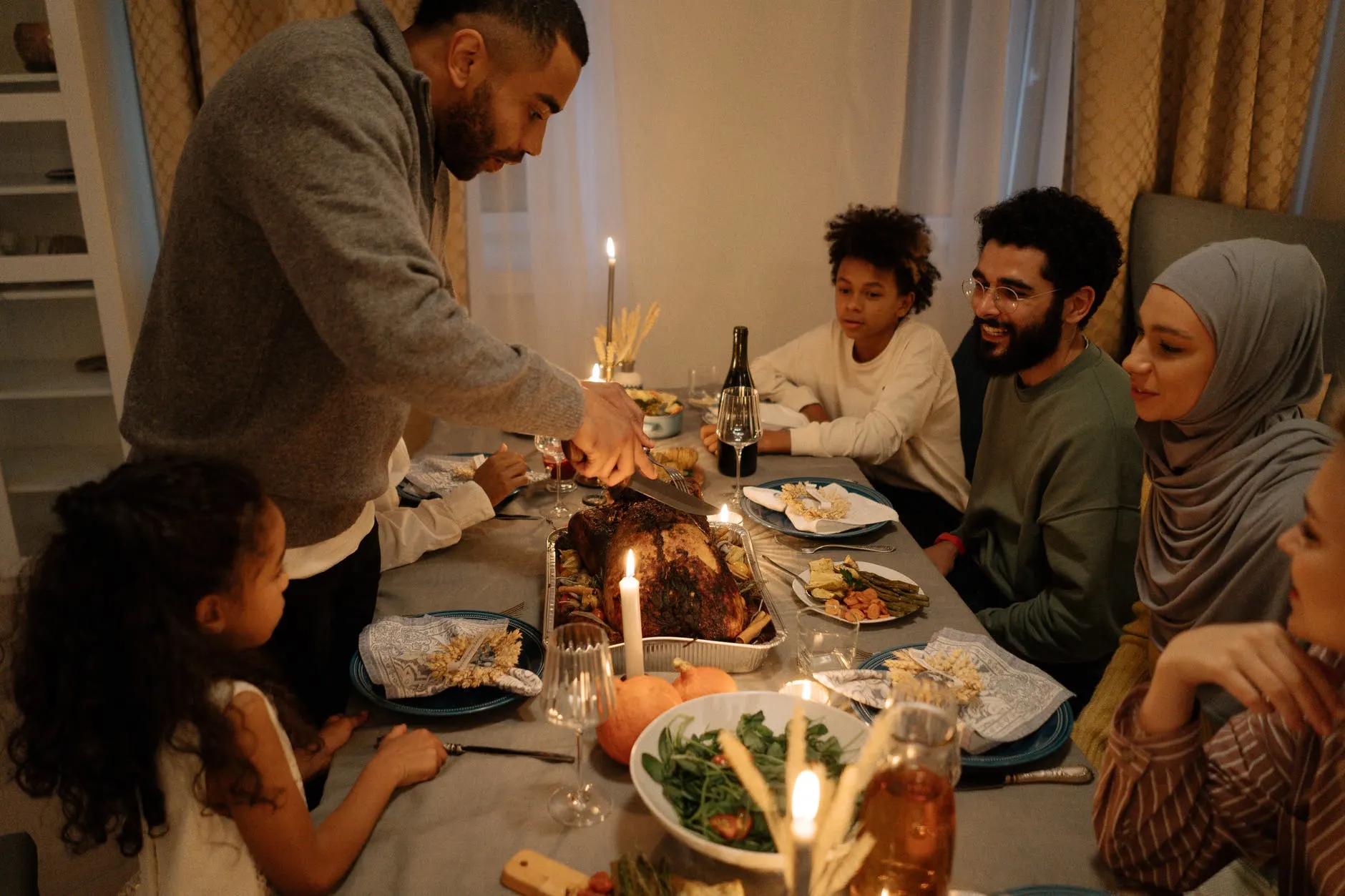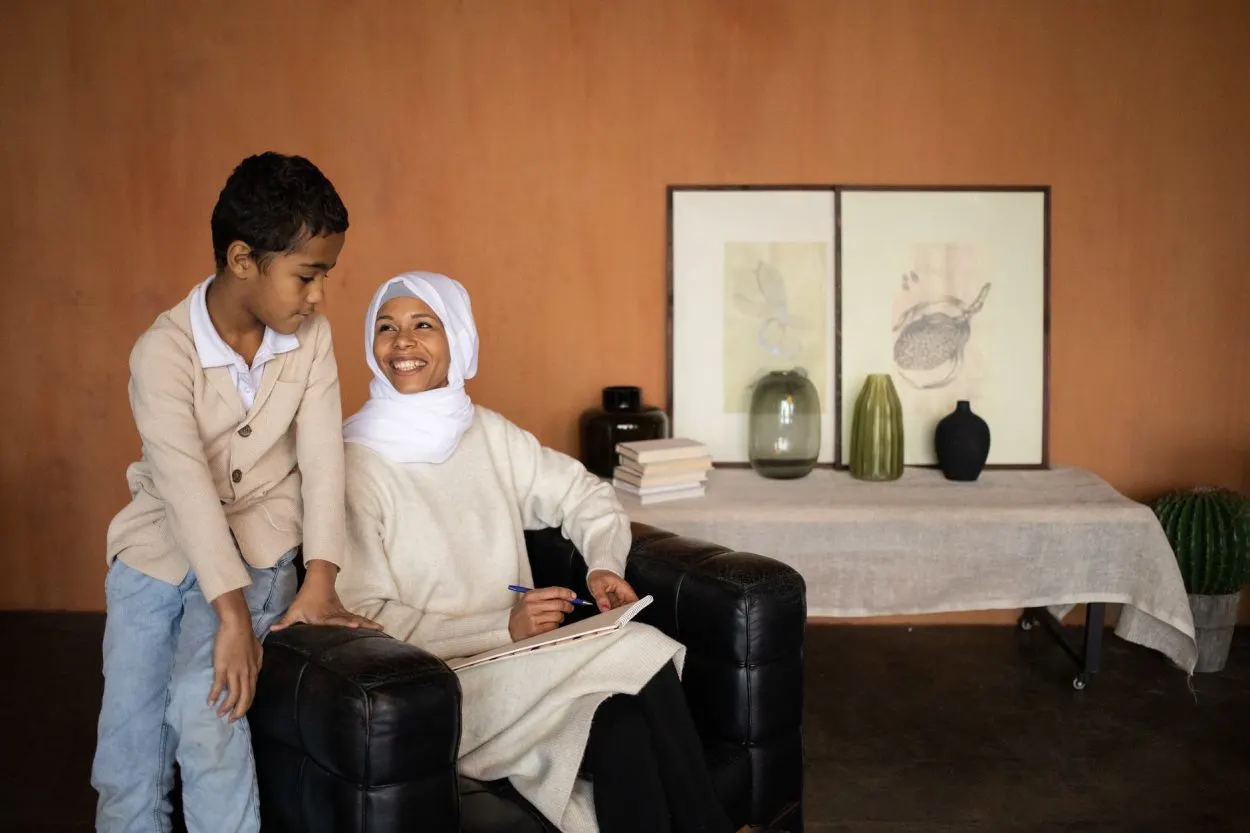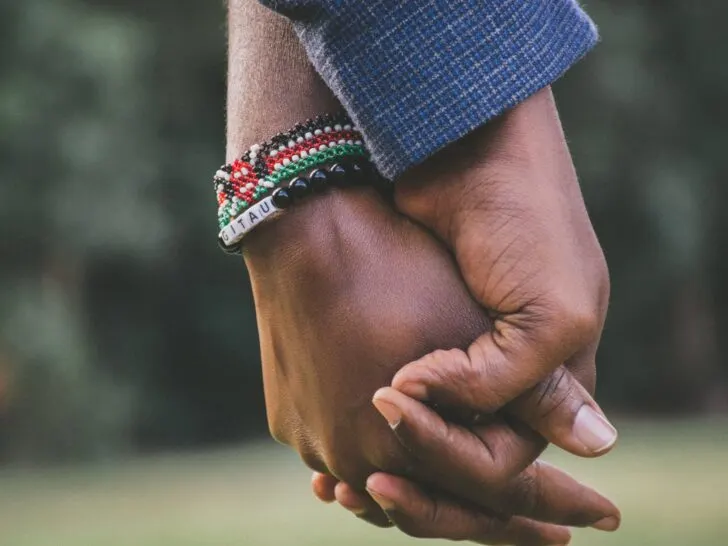You might have come across a lot of Arabic terms with an Arab friend during your hangout―and you might find these terms hard to decode.
While you might find some words overwhelming to hear, you’ve probably heard words such as Habibi and Habibti―while talking to your Arab buddies.
They might sound similar to each other― but these terms were used for the opposite gender. Habibi refers to males, while Habibti is used for the ladies. But what do these terms specifically mean?
In Arabic, the word for love is ‘Hub’ (حب) and the beloved person is called ‘Habib’ (حبيب).
Both Habibti and Habib came from this root word ‘Hub.’ Both are adjectives used for affection and love.
Habibi (حبيبي) is for male which means My love (masculine), which is used for a male lover, husband, friend and sometimes for male colleagues― while Habibti (حبيبتي )on the other hand, is for females which means ‘my love’ (female) used for wife or girls.
In this article, I will share the difference between Habibi and Habibit and when you can use these terms. Let’s go!

Habibi and Habibti: The Arabic meaning
The name Habibi is derived from an Arabic root word ‘Hub’ (حب) that signifies “‘love” (noun) or “to love” (verb).

‘Habib’ (حبيب) which literally translates as “a person one loves” (singular neutral). It can be used for words like ‘sweetheart’, ‘darling‘, and, ‘honey‘.
Suffix ‘EE’ (ي) denotes ‘my’ so when you add it at the end of ‘Habib’ (حبيب), it becomes the word ‘Habibi’ (حبيبي) means “my love.”
And as for Habibti, you have to add ت (Ta’) called تاء التأنيث the female Ta’ at the end of Habibi (masculine term).
And it will become Habiba’ (حبيبة). My love / my beloved (Feminine).
This is the beauty of the Arabic language that just by adding or erasing a word, we get a different meaning, number, sex, and subject.
Difference between Habibi and Habibti
Habibi and Habibti are the most widely used term of endearment in the Arab region.
Well, the difference is very little but yet too powerful. In Arabic, you can add one letter to the end of the masculine term to make it a feminine word.
Refer to the table below to see the difference:
| In Arabic | Use for | Root word | |
| Habibi | حبيبي My Love | Male | Hub حب |
| Habibti | حبيبتي My Love (Feminine) | Female | Hub حب |
Both come from the same root word, “Hub.”
In English, you say my love for both males and females. There are no different terms for expressing love.
However, Arabic is a unique language; you refer to males and females differently. What I mean by that can be shown with an example of Habibi and Habibti.
Both came from the same root letter; however, just by adding (ة) at the end of Habibi can convert it into feminine, it is also essential that it’s pronounced as a light T.
Not only in Habibi but any word that is by default masculine in Arabic(almost all the words in Arabic) change to a Feminine Word by adding (ة) at the end. Powerful!
There are many other phrases or terms are commonly come from Hub root word, including :
Al Habib (الحبيب) = The beloved one
Ya Habib (يا حبيب) = Oh, beloved one
Ya Habibi (يا حبيبي) = Oh, my beloved one
Yalla Habibi (يلا حبيبي) = Come on (let’s go) my beloved one
Is Habibi romantic?
Yes, it is! Habibi is used to showing romance, love, or affection to your better half. However, it is not always romantic.

The term is not romantically in context, but it can be in that manner depending on the context of the conversation and situation.
If you are saying it to your husband, then it is romantic― however, if you call your friend or family member, it is just a term to express love in a friendly manner.
In some cases, terms like’ Habibi’ or ‘Habibti’ are used aggressively, you can hear an Arab say during a verbal fight, and goes like this:
“Look Habibi, if you don’t shut up, I will hit you or do something bad to you.”
So to conclude, ‘my loved person does not always mean ‘my beloved person!
Can you call a friend Habibi?
Yes, a male friend can call his male friend Habibi. A female friend calls her female friend Habibti.

It’s an expression of love commonly used between close friends and family members. It is totally common and appropriate in Arab countries. However, you should not drop the bomb of Habib and Habibti everywhere.
I mean some Arabic cultures like Jordan, Egypt, Lebanon that men use Habibi with no love connotations for their friends, but this common practice makes other Arabs (like the Maghreb: Morocco, Libya, Algeria, Tunisia) foreign to this language culture, feeling very uncomfortable!
So you can use ‘Habib’ (حبيب) for ‘friend’ but technically speaking, it is entirely wrong. the word ‘Sadiq’ (صديق) is the correct term (singular neutral) word for ‘friend’ in Arabic.
How do you respond to Habibi or Habibti?
When someone calls you Habibi, it means he is either calling you asking for your attention just like we say, “Excuse me” in English. Or it is a way to show closeness as we say in English, “Hey Brother,” when he is not your actual brother―Habibi in Arabic is similar to this.
Your response should be “Yes, Habibi” or Naam Habibi (نعم حبيبي) in Arabic if the person is calling you for your attention. If he compliments you using the term Habibi, you can say “Shukran Habibi.” (شكرا حبيبي’, ) which means “thank you, my love“.
“Yalla Habibi”―What does it mean?
Yalla is slang in Arabic which is derived from Ya يا defined as a’ (حرف نداء’ ) calling letter. It is used before the name or noun. The word ‘Ya‘ in Arabic is the counterpart for the word ‘hey‘ in English. Alla on the other hand refers to the Arabic word for god―Allah.
Arabs use the phrase, ‘Ya Allah‘, quite frequently, all the time, as a motivation to act, do something, etc. Over time and for ease of speech, it became known as Yalla.
Put together, the phrase Yalla Habibi is simply: “Come on, Dear”.
When to use Habibi and Habibiti?
As a male, you can use Habibti for your wife, lover, or mother. And you can use Habibi for your male friends and close colleagues as a male. However, as a male, you don’t go out calling your friends (female) Habibti.
You might find yourself in an awkward situation if you call your female friend, Habibti.
The same goes for females; they can use ‘Habibi’ for their husbands and close family members but not for their male friends.
Unfortunately, people often misuse these terms, and they are being said in places and gatherings where it is not appropriate to say Habibi or Habibti.
Familiarity doesn’t mean closeness and there is still a code of respect you should adhere to.
Want to learn more Arabic endearment expressions? Watch this video below:
Bottom Line
As a foreigner or new to the Arabic language, you might start dropping these terms everywhere ―but wait! Don’t just get excited and use Habibi for your professional acquaintance or manager unless you both share a very good bond.
So in simple words, Habibi has a different meaning in Arabic according to the person you are talking to. But in general, Habibi means ‘my love’.
Literal meanings are a lover or a dear one. Frequently it is used by men in a colloquial sense to mean something like ‘dude’ or ‘brother’ in an argument situation.
And sometimes, It is also used as a thanking phrase between men in particular dialects like Shukran Habibi.
I hope this article helps you understand what Habibi and Habibti mean.
Happy reading!
Other Articles
- Naruto’s KCM, KCM2 And KCM Sage Mode (A Breakdown)
- Web Novel VS Japanese Light Novels (A Comparison)
- The Differences Between a Manga and a Light Novel
- Gold VS Bronze PSU: What’s Quieter?
- Difference between the formula v=ed and v=w/q
For a shortened and simplified version of this article, click here.

